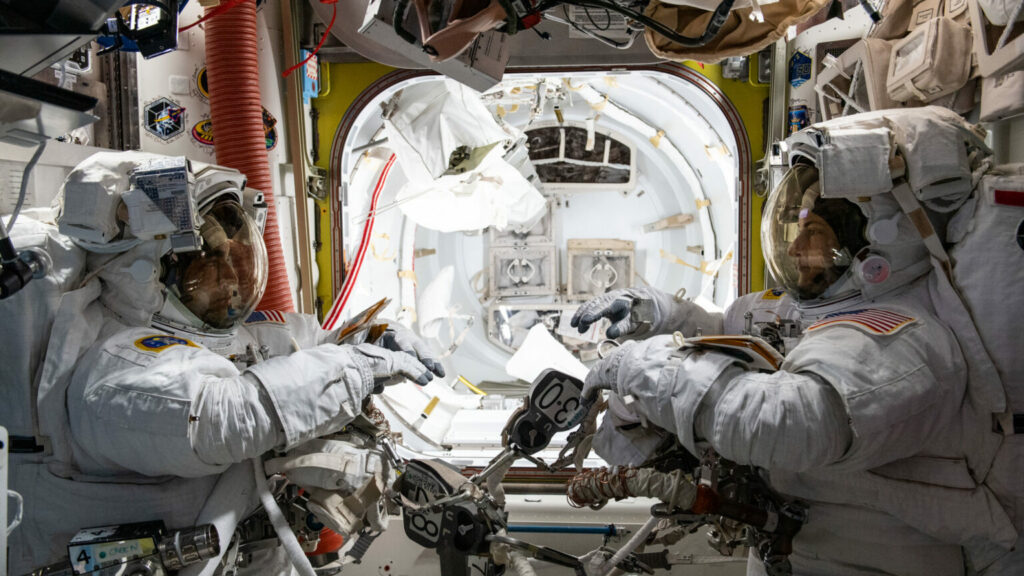Humans are an extremely socialized and chatty species that uses speech as the main form of communication. While some people tend to talk less and listen more, the instinct to verbally express emotions and thoughts is a natural mechanism. But astronauts in the cold vacuum of space must rely on other means of information exchange. They mostly use a communications set. But how to communicate in an airless space if the radio systems suddenly fail when going into outer space?

For these non-standard and emergency situations, astronauts are taught to develop basic nonverbal skills so that they can understand their colleague’s gestures. All astronauts know how to convey any information to the interlocutor without words: from numbers and emotions to the state of the equipment and descriptions of other problems on board the ISS. Many of these gestures are also often used by scuba divers, pilots, and combat units.
In this new video from NASA’s STEM YouTube channel, astronauts Raja Chari and Kayla Barron demonstrate some interesting nonverbal ways to express themselves clearly, which they learned while preparing for life and work on the International Space Station.
“In case of rescue, the sign “Wait” or “Danger” is often used — it is a clenched fist raised up. It means that you need to stop and look around, because something unusual is happening. The “OK” sign, where the index finger and thumb join, is very often used to demonstrate that everything is in order. Moreover, it is used both in the form of a question and an answer. We can also show all the numbers from 1 to 10 with one hand, where the numbers after 5 are shown with the hand at an angle of 90 degrees,” explains Raja Chari.
The transmission of important information in extreme conditions of low Earth orbit requires memorization and flawless execution of these standard hand gestures, as this is the key to survival.
“Many nonverbal signals are of great importance when you work day in and day out, especially in stressful situations like spacewalking. You should be able to detect nonverbal language even by facial expression through the glasses of space helmets,” adds Chari.
Earlier, a NASA astronaut confessed that Russian cosmonauts are “brainwashed”.
Follow us on Twitter to get the most interesting space news in time
https://twitter.com/ust_magazine

